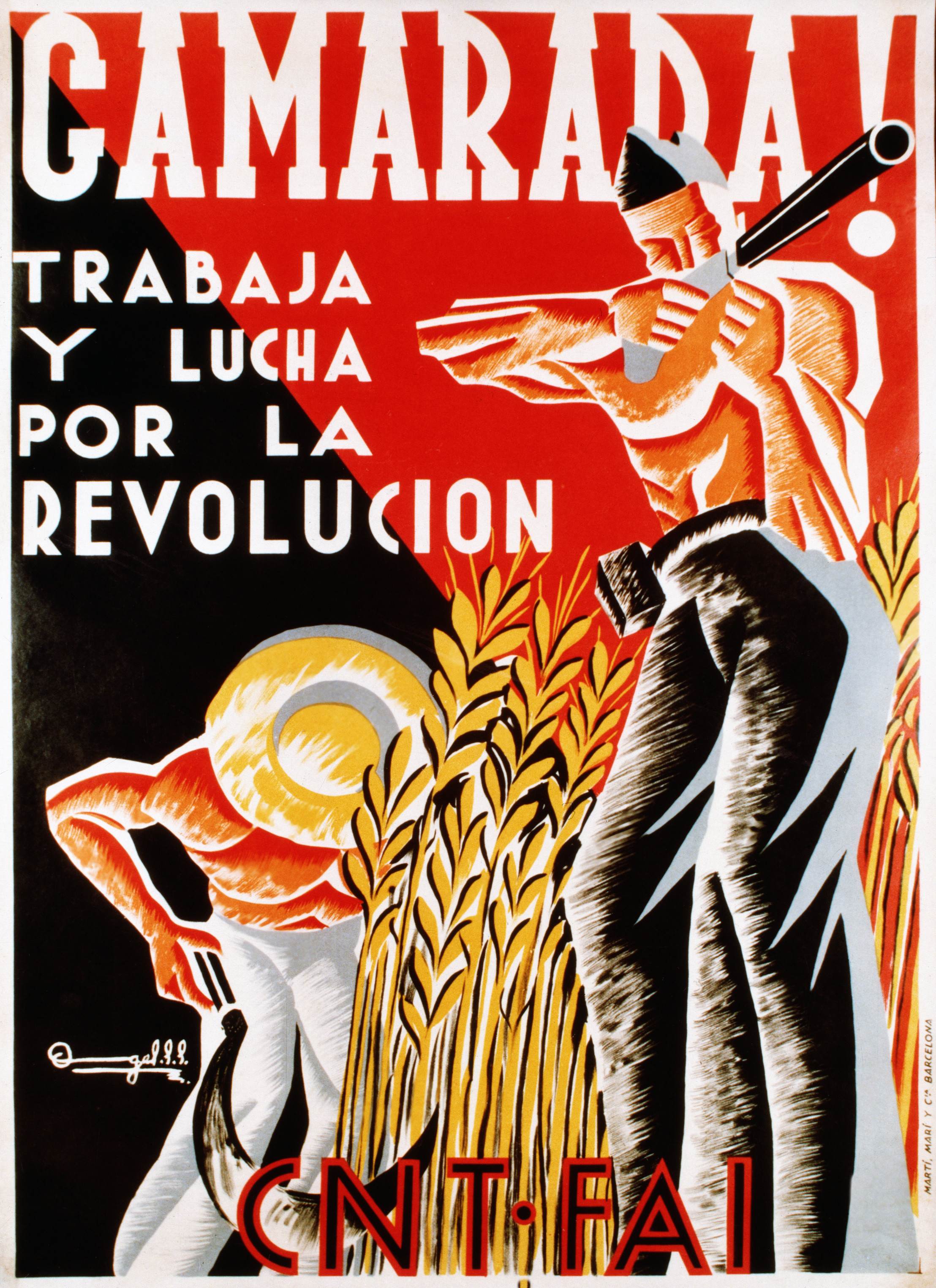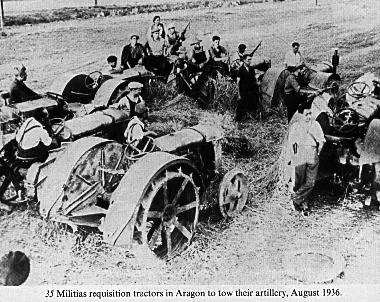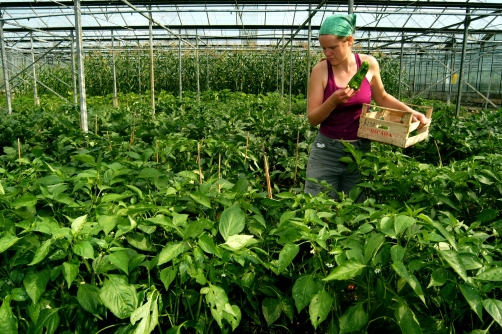Conclusion
Following the huge intellectual, political and emotional process I have undertaken in un/learning, deconstructing and reconstructing diverse ideas and information , I have generated an first draft of my ideas of what an ‘anarchist agroecology’ can look like. This concludes this output packet and I hope generates more questions than it does answers.
I have also managed to conclude and condense my thoughts on the strategic direction of the animal liberation movement, which you can read in the supporting material section here.
To have more conversations about anarchist agroecology, animal liberation, or any of the topics explored in this output packet, please email me at: nicole@emptycagesdesign.org
Towards an Anarchist Agroecology
Working towards an anarchist agroecology is a commitment to creating not only a different food system, but a different way of life that transforms social, ecological, economic and inter-species relations. Agroecology in practice underpins the actuality of achieving individual and collective autonomy and freedom from oppression.
Being able to live as human beings in relationship with the land requires resistance to, and dismantlement of, capitalism and the state. Anarchists recognise that lobbying is futile, while the state’s function is to protect the propertied, owning and capitalist class. Anarchist agroecological thinking rejects the consumer-producer relationship and seeks to build models that de-monetise the food system.
However it is not a question of waiting for a revolution or one day achieving an anarchist society. The work starts now and builds on generations of those displaced from the land through capitalist coercion protected by the state.
How we produce and distribute food is a fundamental issue that anarchists cannot ignore. Agroecological practices are those that support us to live in a more socially just and ecologically sound relationship with the land. We reject and actively resist the industrial and capitalist agricultural models of monocultures, pesticides and fossil fuel based fertilisers, genetic engineering, factory farming, plantation slavery and more. Our commitment is to the freedom not only of ourselves, but also of the seeds, plants and animals, from corporate control.
An anarchist agroecological worldview recognises the historical repercussions of agriculture and its role in creating patriarchical, racist, colonialist and class-stratified societies and civilisations. It therefore engenders a commitment to rewilding, confronting domestication and creating alternative models of living with inspiration from horticultural and gatherer/hunter societies. Anarchist agroecology means de-colonalisation. It means solidarity with Indigenous Nations resisting assimilation and ecological genocide via capitalist developments, such as fracking.
An anarchist agroecology confronts the last 10,000 years of patriarchical agriculture. It seeks to compost gender and queer how food is produced and consumed. The colour of the food system is not ignored, racism in our own movements as well as those systems that oppress our communities, is actively confronted.
How and why knowledge is produced and shared matters. An anarchist agroecological worldview integrates both indigenous and peasant-based knowledge of cultivation, with observation, action research and grassroots science (not controlled or dominated by universities or industry). Knowledge is shared through popular education models, such as grower to grower (campesino o campesino) networks, field and farm schools, open source journals and more.
The concept of property is rejected, with working class appropriation encouraged, via land squats, occupations and more. In the long term process of social change, there is a commitment to the re-collectivisation of land ‘ownership’ and the creation of space for diverse patterns to be explored, suited to each community and bioregion. The re-appropriation of land will ignite huge state repression, as such anarchist agroecologists must cultivate resilience to repression, build models of solidarity globally, and recognise the futility and dogma of nonviolent ideologies. The state and owning classes will not allow the means of their economic production to be withdrawn without a fight.
An anarchist agroecology recognises that humans do not have dominion of animals or nature and that animals do not deserve to be commodified, exploited, abused or enslaved, any more than their human counterparts. The generation of radical solidarity across species is the consequence of embracing an anarchist agroecology, which recognises speciesism as harmful and an ongoing barrier to liberty, as any other form of oppression.
Achieving an anarchist agroecology will take coalition building, community organising, active attacks on the state and capitalist food system, learning and re-learning practices and tools to feed ourselves and restore landbases, and more. We will bring about huge changes through breaking bread and breaking sweat together.
In summary, working towards an anarchist agroecology differs from other worldviews and strategies around changing our food system. The main premises are that the state is not our friend, but our enemy. That animals are not ours to ‘farm’, enslave, control, cage, slaughter, or accumulate wealth from. That multiple forms of oppression intersect and demand an analysis and practice that recognises the totality of different forms of domination. It recognises that anarchism cannot be achieved without models of food production that support humans to live in liberated relationships with each other, animals or the land.
Resources & References
Anarchism/State/Capitalism/Class
- http://www.blackandgreenpress.org/p/publications.html - Anarcho-primitivist publisher
- The language & anthropology of horticulture and agriculture - http://rewild.com/anthropik/2007/06/agriculture-or-permaculture-why-words-matter/
- Anarchist distro with many downloadable decent publications - http://www.sproutdistro.com/catalog/zines/
- Crass, C. (2013). Towards collective liberation: anti-racist organising, feminist praxis, and movement building strategy. Oakland, PM Press.
- Marshall, P. (2010). Demanding the impossible. Oakland, CA: PM Press
http://revolutionaryautonomouscommunities.blogspot.co.uk - Have mutual aid food program - The Global Land Grab, A primer, Transnational Institute, October 2012
- Gottlieb, R. and Joshi, A. (2010). Food justice. Cambridge, Mass.: MIT Press.
- Transnational Institute, La Via Campesina, Hands off the Land Alliance (3013) Land concentration, land grabbing and people’s struggles in Europe
- Article about how Spanish agricultural cooperatives were organised - http://anarchism.pageabode.com/afaq/secI8.html#seci85
- Posts on the libcom (a popular anarchist website) about agriculture - https://libcom.org/tags/agriculture
- Article about the emergence of agricultural capitalism - https://libcom.org/blog/class-struggles-climate-change-origins-modern-agriculture-18082014
- Example of anarchist agroecology organising - http://muitoalemdoceu.wordpress.com/2014/05/04/recent-struggles-and-anarchist-organizing-in-brazil
- Article about uprisings in Brazil 2013 - http://www.crimethinc.com/texts/recentfeatures/brazilpt1.php
- More agroecology work in Brazil - http://www.rioonwatch.org/?p=2084
- Zine distinguishing the difference between cultivation and agriculture - http://theanarchistlibrary.org/library/witch-hazel-against-agriculture-in-defense-of-cultivation
- Interesting interview exploring roles of anarchist organisations - http://libcom.org/blog/interview-new-british-organization-collective-action-14062012
- Take Back the Land Zine - A zine exploring land ownership in Scotland - http://www.reclaimthefields.org.uk/resources/take-back-the-land-zine-1/
Race
- Food Justice blog with a strong focus on race & white privilege - http://foodjusticepolitics.blogspot.co.uk
- Incite! Blog - INCITE! is a national activist organization of radical feminists of color advancing a movement to end violence against women of color, trans & gender non-conforming people of color, and our communities through direct action, critical dialogue, and grassroots organizing. - http://inciteblog.wordpress.com/
- Blog about indigenous veganism/veganism as de-colonisation - http://www.decolonialfoodforthought.com/2011/03/palabra-on-indigenous-veganism.html
- The Sistah Vegan Project - http://sistahvegan.com
- Article about food politics, the black panthers & more - http://stirtoaction.com/keep-the-aspidistra-flying-olly-twist-the-black-panthers-and-food-autonomy/
- Phd student’s blog, with articles about various subjects including permaculture, decolonisation etc - http://cultivatingalternatives.com/
- The Color of Violence: The Incite! Anthology Paperback – August 1, 2006 by INCITE! Women of Color Against Violence (Editor)
- Gottlieb, R. and Joshi, A. (2010). Food justice. Cambridge, Mass.: MIT Press.
- Detroit Black Community Food Security Network - http://detroitblackfoodsecurity.org/
- Black Farming, Self Determination and Resilience - http://www.geo.coop/story/black-farming-self-determination-and-resilience
- http://browngirlfarming.com/complete-color-of-food-series/
- http://vegansofcolor.wordpress.com/
- Collection of resources about race and the food system - http://www.whyhunger.org/getinfo/showArticle/articleId/949
- Whites Challenging Racism Syllabus - http://www.animalfreedom.info/study/wcr/wcrsyllabus2.htm
Speciesism/Animal Agriculture
- Blog about animal studies & food politics - http://ikesharpless.com/
- Blog exploring rewilding/civilisation/veganism - http://earthspiritandanarchy.blogspot.co.uk/
- Deconstructing myth of humane animal agriculture - http://www.humanemyth.org/
- Example of neocarnism - http://www.livestockforlandscapes.com/
- Article about global ‘pork market’ an example of capitalist animal agriculture - http://en.engormix.com/MA-pig-industry/management/articles/global-porkmeat-m%20arket-t2362/124-p0.htm
- Farmageddon - new book about factory farming - http://www.raw.info/farmageddon
- James McWilliams new book - The Modern Savage - an exploration of the ‘compassionate carnivore’ movement and how harm persists - http://james-mcwilliams.com/?page_id=4
- Article critiquing Allan Savory’s TEDx Talk - http://www.slate.com/articles/life/food/2013/04/allan_savory_s_ted_talk_is_wrong_and_the_benefits_of_holistic_grazing_have.html
- George Monbiot’s critique of Holistic Grazing Management - http://www.theguardian.com/environment/georgemonbiot/2014/aug/04/eat-more-meat-and-save-the-world-the-latest-implausible-farming-miracle
- Website featuring book about repression of earth & animal liberation movements in the US in recent history - http://www.greenisthenewred.com/blog/
- Animal Liberation: Devastate to Liberate, or Devastatingly Liberal? - http://theanarchistlibrary.org/library/anonymous-animal-liberation-devastate-to-liberate-or-devastatingly-liberal
- Potter, W. (2011). Green is the new red. San Francisco: City Lights Books.
- Bulliet, R. (2005). Hunters, herders, and hamburgers. New York: Columbia University Press.
- Carlson, L. (2001). Cattle. Chicago: Ivan R. Dee.
- Valenze, D. (2011). Milk. New Haven: Yale University Press.
- Herren, R. (2000). The science of animal agriculture. Albany, N.Y.: Delmar Publishers.
- Example of plans for livestock expansion - http://news.ilri.org/2014/11/07/animal-agriculture-research-director-envisions-developing-world-livestock-sector-in-2054/
- Great flyer/info-sheet about animals & capitalism - http://www.tierbefreiung-hamburg.org/texte/humans-animals-and-nature-in-the-crisis-on-the-need-for-an-anti-capitalist-critique-of-animal-exploitation
Gender
- http://vegina.net/about/ - vegan feminist blog
- The Color of Violence: The Incite! Anthology Paperback – August 1, 2006 by INCITE! Women of Color Against Violence (Editor)
- Donovan, J. (1993). Animal Rights and Feminist Theory. In: G. Gaard, ed., Ecofeminism, 1st ed. Philadelphia: Temple University Press, pp.167 - 194.
- Zaikowski, C. (2012). The Master's Tools Will Never Dismantle The Master's Rape Rack: Feminism and Animal Rights. [online] Myths about "The Vegetarian Myth". Available at: http://vegetarianmythmyth.wordpress.com/2012/05/16/the-masters-tools-will-never-dismantle-the-masters-rape-rack-feminism-and-animal-rights/
General Anti-Oppression Links
- Anti-oppression blog - http://radbrains4lyfe.tumblr.com/
- Anti-oppression training collective - http://www.aortacollective.org/aorta-points-unity-0
- Article about how we dehumanise through language - http://www.gaiauniversity.org/gu_blog/post/%E2%80%98cleansing-stock%E2%80%99-and-other-ways-governments-talk-about-human-being
Agroecology/Land use/Permaculture
- https://medium.com/we-agvocate/can-the-world-go-vegan-b1686fb04ed3
- Andrew Faust explains how the energetics of non meat eating changes when we compare truly pastured meat and dairy products to factory farmed. - https://www.youtube.com/watch?v=7QbfzyycBRI#t=22
- Permaculture Association Research Digest - http://permaculture-research.blogspot.co.uk/ http://theagroecologist.com/ - clippings service
- Overview of agroecology - http://agroeco.org/
- Book documenting permaculture/agroecology solutions worldwide - http://www.cultureofpermaculture.org/blog/book
- Denman Island Veganiculture Association - http://www.veganiculture.blogspot.co.uk/
- Vegan Organic Network - www.veganorganic.net
- Veganic Agriculture Network - http://www.goveganic.net/
- http://www.rewildingeurope.com/european-rewilding-network
- Fairlie, S. (2010). Meat. East Meon: Permanent Publications.
- Montgomery, D. (2012). Dirt. Berkeley: University of California Press.
- Lowenfels, J. and Lewis, W. (2010). Teaming with microbes. Portland, Or.: Timber Press.
- Lowenfels, J. (2013). Teaming with nutrients. Portland, Or.: Timber Press.
- Burnett, G. (2014). The vegan book of permaculture.
- The Permaculture Research Handbook - https://www.permaculture.org.uk/research/3-research-handbook-and-training
Resistance/Anarchist Agroecology Examples
- Article about autonomous & squatted spaces in Europe - http://bloominginspace.wordpress.com/2011/02/13/autonomous-and-squatted-villages-of-europe/
- Repression of land struggles in Brazil - http://fsrn.org/2014/07/brazils-agribusiness-lobby-pushes-back-against-indigenous-land-recognition/
- Food Empowerment Project - example of a more radical food orientated project - http://www.foodispower.org
- Journal of Peasant Studies - Free downloadable edition - JPS 40: Peasants & Politics - http://explore.tandfonline.com/page/bes/fjps-peasants-and-politics-vsi
- Blog highlighting the power of coalition building - http://www.kindredcommunity.com/2013/05/moms-and-anarchists-unite-in-march-against-monsanto/
- Article about Cuba - Sustainable Agriculture & Resistance - http://www.newformulation.org/2agriculture.htm
- Articles about anarchist in Brazil linking struggles around agroecology/nutrition/labour & libertarian education - http://www.ainfos.ca/en/ainfos27154.html & http://zabalaza.net/2011/04/23/especifismo-in-brazil-an-interview-with-the-anarchist-federation-of-rio-de-janeiro-farj-3/
- Desmarais, A. (2007). La Vía Campesina. Halifax: Fernwood Pub.
- Holt-Gimenez, E. (2011). Food movements unite!. Oakland, CA: Food First Books.
- Holt-Giménez, E., Patel, R. and Shattuck, A. (2009). Food rebellions!. Cape Town: Pambazuka Press.
- Wittman, H., Desmarais, A. and Wiebe, N. (n.d.). Food sovereignty.
- Ackerman-Leist, P. (2013). Rebuilding the foodshed. Santa Rosa, Calif.: Post Carbon Institute.
http://occupythefarm.org/category/farming/ - Article looking at history of gardening & its relationship to social change - https://orionmagazine.org/article/revolutionary-plots/
- Article looking at food related organising “To make any real progress, grassroots organising and action must be carried on in the light of a recognition of the ideology of power, an analysis of the structures of power, and an understanding of what needs to change.” - http://wellsharp.wordpress.com/2008/07/05/food-politics-striving-for-a-radical-social-critique-or-just-looking-for-a-good-lunch/
- Zapatista's relationship with agroecology - https://www.popularresistance.org/zapatistas-celebrate-10-years-of-autonomy-with-escuelita/
- http://www.schoolsforchiapas.org/advances/sustainable-agriculture/workshops-agro-ecology-promoters/
- Article critiquing food sovereignty - http://ejfood.blogspot.co.uk/2012/03/food-fights-hunger-politics-and_27.html
- Reclaim the Fields Bulletins - http://www.reclaimthefields.org/content/bulletins
- LVC (La Vía Campesina). 2013a. From Maputo to Jakarta: 5 years of agroecology in La Vía Campesina [online]. Jakarta: La Vía Campesina. Available from: http://viacampesina.org/ downloads/pdf/en/De-Maputo-a-Yakarta-EN-web.pdf [Accessed 12 August 2013]
Other Key Books read during this Output Period
- hooks, b. (1994). Teaching to transgress. New York: Routledge.
- Berger, D. (2014). Struggle within.
- Law, V. and Martens, C. (2012). Don't leave your friends behind. Oakland: PM Press.
Films watched during this Output Period
- The Coconut Revolution (2001, 50min) - Bougainville, with a populations of only 160,000 has managed to close and keep closed one of the biggest mines in the world. They have held their ground for a decade with antique weapons and home-made guns. These people have taken on the biggest mining company in the world and won - https://www.youtube.com/watch?v=LDpvxQe_Jhg
- Soil, Struggle & Justice - Agroecology in the Brazilian Landless Movement - http://www.soilstruggleandjustice.org/
- Animal Liberation, Tokenizing 'Intersectionality', and Resistance Ecology - https://www.youtube.com/watch?v=-ndJ314WTEU

Peasant collectives played a large role in sustaining the anarchist resistance in the Spanish Revolution, 1936.

"Food sovereignty is about the struggles for autonomy, for territorial control, to build strong people’s assemblies, to recuperate lo comunitario; it means building movements to care for the forests, water, recuperate the soil, preservation of ancestral seeds, stopping the entrance of GMOs. These are everyday and permanent struggles."
- Ramon Vera
Land occupations will play a huge role in re-distributing land for agroecology.
Occupy the Farm is an ongoing social movement started in California.

MST (Movimento dos Trabalhadores Sem Terra) have used land occupations to settle thousands of families in Brazil.

Grow Heathrow, a squatted land project started to resist the expansion of Heathrow Airport

Yorkley Court Farm, a 60 acre squatted farm in the Forest of Dean, UK.
"We believe in agroecology as a tool in the construction of another way to produce and reproduce life. It is part of a socialist project, a partnership between workers and grassroots organizations, both rural and urban. It should promote the emancipation of workers, peasants, indigenous peoples and afro-descendents. True agroecology, however, cannot coexist in the context of the capitalist system."
- La Via Campesina, 2013

Zapatista farmer. Agroecology has been central to the Zapatistas being autonomous.
"The land struggles of the MST and the EZLN are not struggles demanding that elites live up to their mortal obligations towards their subordinates. On the contrary, both movements seek to fundamentally transform or even transcend that relationship by empowering their membership through the creation of 'autonomous rural communities'.... These... allow their members to secure and protect their access to land and hence resist the full commodification of land and monetarization of relations of production."
- Leandro Vergara-Camus

Growing with Grace is a vegan-organic market garden in the UK. Plant based systems will replace harmful industrial animal agriculture.
"We must subvert the human-animal relationship that is based on human dominance over animals and start creating new relationships that reflect our desires and passions. Coupled with a project of attack on the institutions that perpetuate relationships based on domination, this is part of the insurrectional project that we engage in."
- Peter Gelderloos

A transformation of land use (where land isn't used for capitalist profit), will create more land for self-determing animals & support the process of rewilding.

